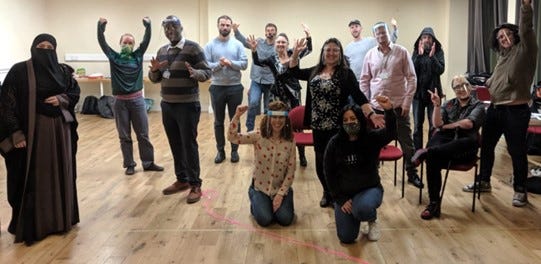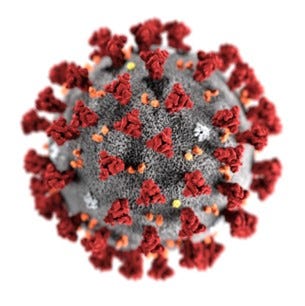We recommend reading the 'about' section before this chapter for background and context.
Around the turn of the millennium, a small group of residents in Charlestown and Lower Kersal, an inner-city area of Salford in Greater Manchester, decided that they want to do something about the poor health in their neighbourhood.
To start with, they created the Community Health Action Partnership (CHAP). Over time, they reviewed their purpose and widened the focus to happiness. They wanted to ensure that local people would always have a say in decision-making. So, they converted CHAP into a community benefit society called Unlimited Potential.
This decision nurtured an environment that encouraged activities that not only valued the views of local people, but increasingly saw them primarily in terms of their strengths, rather than their needs. This shifted the design of, and approach to, projects. They started not only with what local people and communities already had, but also prompted Unlimited Potential to actively seek out and recognise underused and undervalued assets.
One focus that arose was the health and well-being of children. In light of the banking crisis of 2008, it became increasingly obvious that austerity and cuts in public services would occur. In Salford, a significant proportion of children were already struggling.
Unlimited Potential listened to children, who identified dads as being as valuable to them as mums. Yet, the approach of ‘the system’ did not reflect this, putting much greater emphasis and pressure on mothers. Based on the children’s feedback, Unlimited Potential worked alongside dads. The learning about positive fatherhood was the basis for an approach now called Dadly Does It. Many years later, this is steadily changing the local approach to improving the health and well-being of children.
This helped us to see local people as sources of new thinking. New solutions are more likely to emerge from an exchange between a diversity of ‘experts’ (local people and professionals). Rather than focusing on engaging with or involving local people, we therefore took to focussing on creating spaces for exchange and innovation, devising new solutions to extremely challenging social issues.
Unlimited Potential was actively involved in the first poverty truth commission in Salford in 2016-2017. This brought together people with direct experience of poverty and ‘civic and business leaders’. Together, they created new, practical solutions around debt, homelessness and mental health, which continue to be used today.
At a similar time, Lankelly Chase Foundation convened a space for several organisations across Greater Manchester to explore what we might do together around multiple disadvantage. From this has emerged the Elephants Trail, which has cultivated an approach to co-production with people with lived experience.
In Greater Manchester, the Elephants Trail is seen as a leading example of co-production: working together equally with local people to create new ways to overcome challenges. It has also attracted national attention, such as by The Guardian, which itself adopted a co-productive approach to film-making, the first product of which was Made in Bury: Elephant in the Room in 2021.
Elephants Trail participants created a set of principles for co-production, based on: strengths; power; relationships; diversity; knowledges; and testing. These have proven consistently reliable in other co-production projects with diverse groups of local people in Greater Manchester.
What does this mean for you?
· How far does your locality or organisation start with the strengths of communities?
· How far does it see local people as sources of new thinking?
Please share your comments, answers and questions with us using the ‘leave a comment’ button below. If you have a newsletter and would like to feature us, please get in touch.
Next time: it is currently easier to apply co-production to social issues, but what about economics?
Next chapter here:
Economics with People
Our journey started in chapter 1 so we recommend reading that first if you haven’t already.







